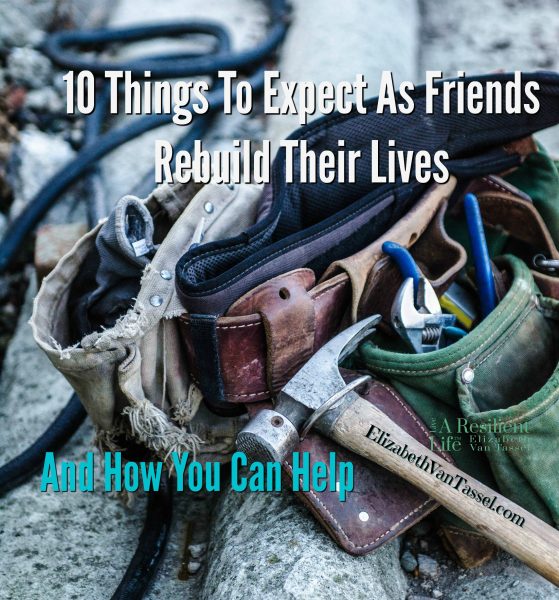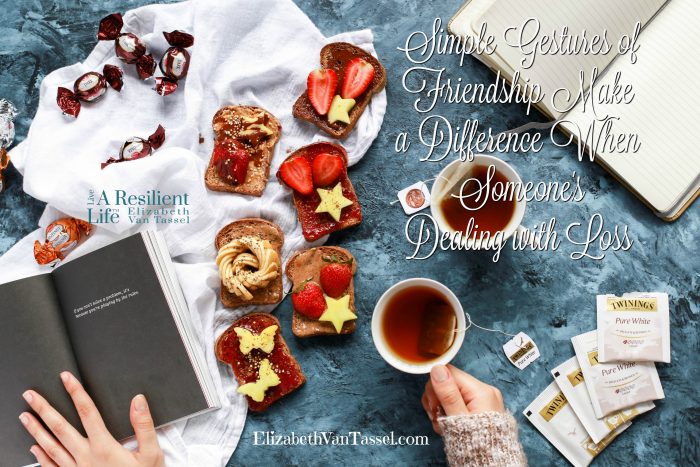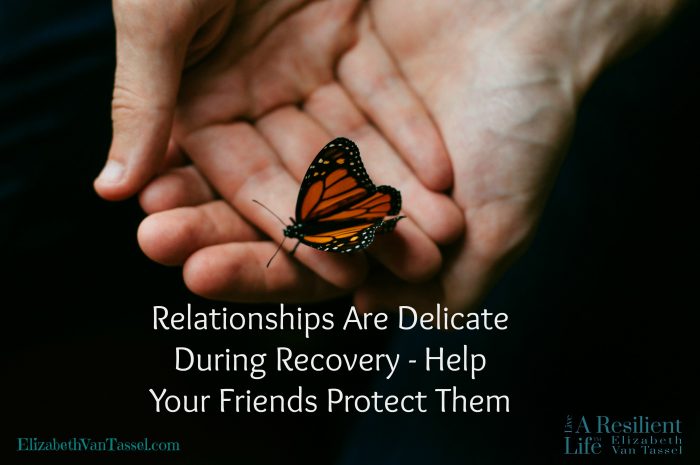
Do you have a friend who’s had a sudden loss of property or huge life change? Here’s 10 things that you may want to anticipate as you partner to help them through this difficult season of life as they rebuild and start again.
- Decisions are hard – whether they’re dealing with doctors in a hospital or stacks of paperwork that suddenly replace their former home, a victim of trauma from fire or flood will have a hard time making small decisions. We all used to call it “fire brain” and try to joke, but it’s really difficult. When they hesitate, try to understand and simplify the situation. For example, selecting two restaurants to choose from is better than saying, “Where do you want to go?” Or saying, I can offer babysitting or running errands to help, rather than, “What can I do for you?”
- Be sensitive to triggers – understand that certain places, smells, activities, and situations may trigger their recent memory of evacuation, sense of loss, or feelings of anxiety. After our home burned down in a wildfire, I remember a friend who still had her home in tact, wanting me to bring my young children over for a playdate – but she had the only house left standing on the block and her only damages were singed plants. Her children had all their clothing and toys. Mine had almost none at the time. I couldn’t yet face the smell of the neighborhood and neither could my four-year-old son, yet she never understood why that was hard for us.
- Give them as much “normal” as possible – If you live outside the area of devastation, ask them to a simple supper or movie. Just being in your home or doing something they would do before the fire or flood will be a balm to the situation. This may seem contradictory to the suggestion above, but this only applies if your home isn’t in the middle of it all. If you do live in an affected area, and your home isn’t really damaged, try meeting at a park or place out of the area to get a break from it all.

- Sometimes they will, sometimes they won’t – want to talk about it, that is. Being flexible and not taking offense if they just want you to listen, or even want to turn “off” the heartache for a couple of hours is fine. I find that asking my friends directly what they want most works well. I can follow their lead and meet them where they are rather than insisting that they relive it or stuff it down.
- A “people person” may seem more hesitant to be in big groups – I love being with people and speaking in public! But after the wildfires, I craved more meaningful communication with people who could understand or sympathize. For a season, I shut out big group activities which just required me to tell our story over and over to curious onlookers, but not really true friends. If you’re hosting an annual party and they decline to come, don’t be offended, and don’t desert them all together. Perhaps they’d rather do something small and simple for a while instead.
- Holidays will be painful – with the fall and winter holidays coming up, know that there will be natural triggers of loss. When you’ve lost all your decorations handed down through generations, it’s very hard. One super helpful thing was our church organizing a Christmas Bazaar where the whole community set up a “shopping” place with trees and ornaments – and everything was free for the wildfire victims. I brought a strong friend with me who said, “What have you always enjoyed about Christmas?” I chose snowmen and we created a little mantle piece and some ornaments that still warm my heart to this day.
- Accepting help is very hard – one of the most humbling things about being a “victim” is when people earnestly want to help. I prefer to be the one bringing over casseroles or praying with friends, but we were so humbled by the grace of many people who reached out to us. Complete strangers would come up, somehow aware of our story, and ask what they could do. Keep in mind, I was thinking about where my kids would go to school since we had no home, and if we had enough socks and an extra pair of shoes. I had no idea how to think about our greater needs in those first few months and weeks. I’ve got resources HERE to help with developing your wish list – this is a great help because the loss can be have such a stunning effect it’s hard to think straight when emotions well up.
- Shopping is difficult – I know you won’t believe it but shopping for basics is hard when you realize you don’t have pots and pans to cook with, or keep thinking you have Tupperware or a favorite cooking dish and then go, “Wait, that was at the other house.” This is super common for catastrophic victims – in time, you learn to laugh at searching for certain potholders or books, but it’s very bittersweet. Offer to be a shopping buddy for your friends who are rebuilding their lives. You can be the strong one when they falter, and offer a coffee break or breather so they can press on.
- Identity issues will arise – it’s super common when an emergency engulfs your whole life to feel like it IS your life. Whether it’s caring for a loved one in hospital, or learning to breathe after the floods and hurricanes, these life-changing events smoother your sense of personal self. The small things like exercise, healthy eating, and running kids to sports suddenly are precious things you wish for. Any sense of “normal” is put on pause while you adjust and figure out the problem at hand. Be kind to your friends and give them grace about mistakes they make right now. Remind them to do something fun and turn off the emergency if only for a short while. My husband saw I’ve been struggling with the current wildfires and smoky air where we live, and suggested we head to the beach for a change. I’ve learned to listen when he prompts me to take a break.

- They need to protect their primary relationships – regardless of the kind of emergency at hand, relationships get strained when recovery is the first priority. Don’t be offended if their circle grows very small during this season. They’re trying to just keep up their marriage and relate with their kids. The best thing you can do is offer play dates or time off so they can go on dates or weekends away by themselves. Relationships are what will really matter 10 or 20 years later, not the things that were lost. But it’s like treading water for them right now, in full survival mode. Anything you can offer to strengthen their primary relationships and wellness is the MOST helpful thing you can do. Our church offered free babysitting for months for fire victims, mostly to run errands, but occasionally my husband and I would get coffee or read books together and turn off the emergency. What a balm that was! And still is today.


This is so good! There are so many good tips in this article!
After we flooded in Hurricane Ike, a well-meaning acquaintance said, “It must be fun getting to completely redo your house.” No. It’s not. Not when you’re living on concrete floors and half-walls and need to make 15 major decisions now before the contractors can start. I’ve also heard people say, “It’s just stuff.” But it’s the stuff people have worked their whole lives for. I know people mean well, but they need to choose their words more carefully sometimes.
I agree Amanda! Many, many people said the same to us, “It’s just stuff.” While that’s technically true, it wasn’t really the couches or pans that I missed, but my grandmother’s fine china filled with memories of happy dinners growing up, and the paintings by my aunt who lived by the sea that graced our walls. The worst, though, was my son’s baby pictures. It’s the gut-level losses that really sting. And especially the loss of time with my baby and toddler, filling out forms instead of going to the park. The lost of “normal” is very tangible. Hope you are doing much better now though, as we are on the whole.
Elizabeth, such tender thoughts you share. Truly, your experiences have produced overflowing empathy for others who struggle. I remember the hard days when my 2-year-old was in ICU for 12 days. As a single mom, I struggled when they finally were ready to release him. Being OUT of the hospital was so foreign, I felt overwhelmed and wondered how to live on the outside. your wisdom is hard-won and so helpful. Praying for you as the current fires trigger hard memories for you. Praise God for a sensitive hubby.
Thank you for your words here Mary Kay. You are always so hope-filled and special! We also did the NICU with one of our sons, it was horrific. He was on monitors for months, when he was well it was such a treasure. On hard days of parenting I try to recall those days we prayed he’d be tough. Grateful for your thoughts and prayers!